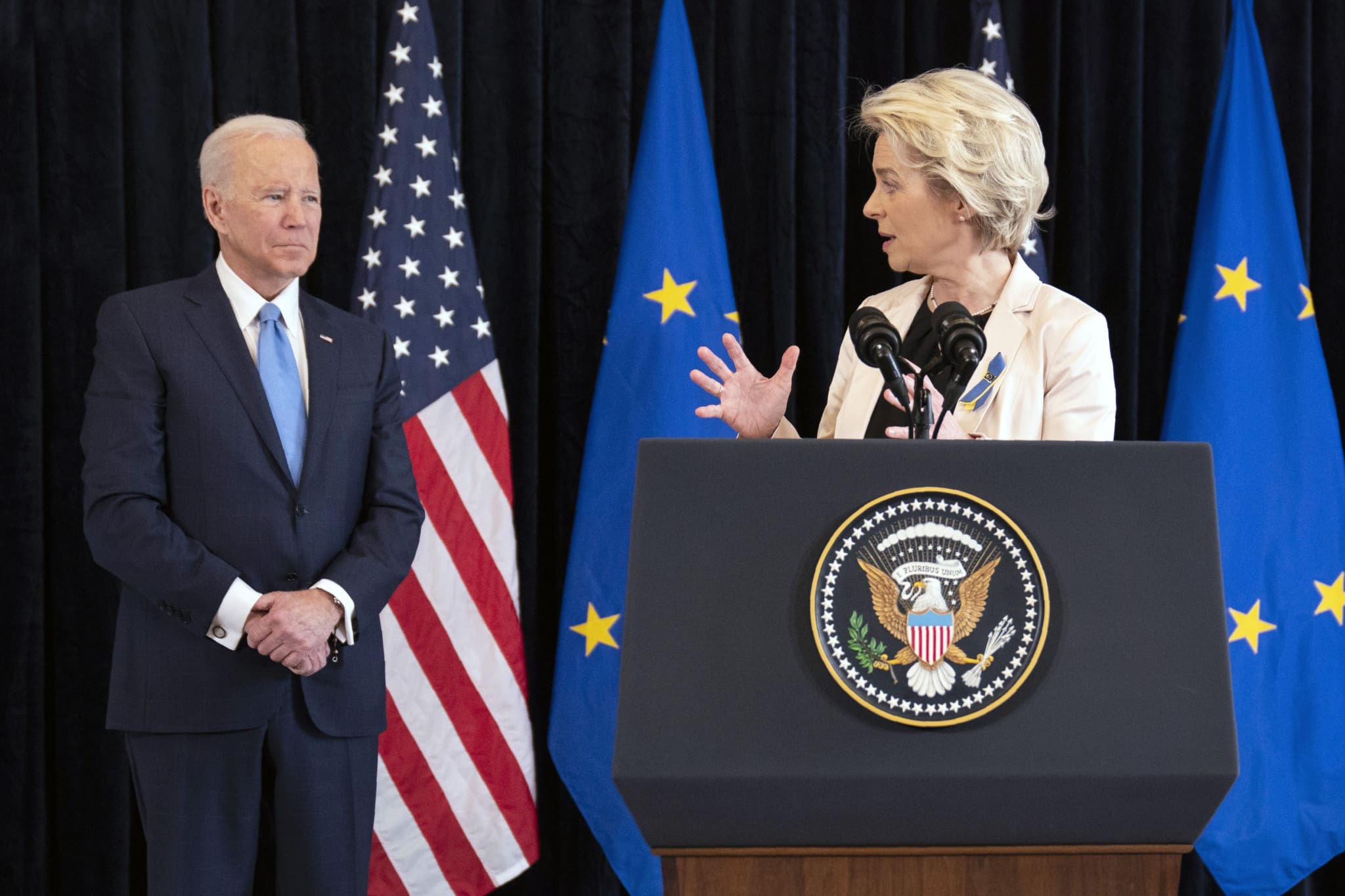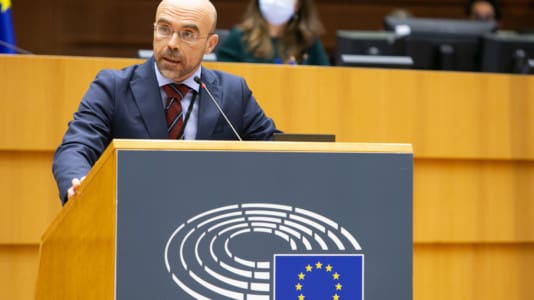Those following current European politics will be familiar with a number of recent examples of the currently dominant liberal elite’s approach to changing rules, if those rules happen to be preventing them from getting their own way.
One of the most recent and still ongoing examples is the attempt to abolish the institution of the veto in almost all policy areas, which would in turn enable the European Parliament’s left-wing majority to essentially reshape the continent’s political landscape in its own progressive image without any opposition. Yet, there are signs that Brussels not only has the full support of the current Biden administration on its way to achieving a left-dominated superstate, but its policies are being directly shaped in line with Washington’s geopolitical interests.
According to a Reuters report, the White House may have found a way to bypass some member states’ opposition to the Russian oil and gas embargo that Brussels is trying to implement in order to starve Moscow of vital income. On Tuesday, U.S. Treasury Secretary Janet Yellen suggested that the EU should consider combining import tariffs on Russian energy resources with a gradual oil embargo. This would in practice make any veto on the Russian oil sanction meaningless, as it could drive the Russian oil price so high that Moscow would have to increase its prices to a point where it would be economically unfeasible for all sides to purchase their product.
Either way, ordinary consumers would have to pay for the price increase brought about by the new tariffs, or by rebuilding the entire energy infrastructure in countries highly dependent on Russian energy. Yellen is expected to present her above proposal at the G7 meeting of finance ministers later this week.
This would especially hit hard in Central and Eastern European countries, whose economies are highly dependent on Russian oil. The EU had offered a transition period for Hungary, Slovakia and Czechia until 2024 to wean themselves off of energy supplies from the east, which the new left-wing, pro-European Czech government of Petr Fiala accepted, and signs are that the government of Slovak Prime Minister Eduard Heger is also going to succumb to these demands. Hungarian Prime Minister Viktor Orbán has, however, signaled that these plans are unrealistic and unacceptable because their implementation would in reality bring the Hungarian economy to its knees.
Judging by the statements coming from the Czech and Slovak leadership, it is patently obvious that neither of them have any plans to comply with the completely unrealistic plans of the EU to change energy suppliers, rebuild their infrastructure to accept a different type of oil and gas, and crucially, to find financial resource to pay for this transition in record time. Yet, Czech Foreign Minister Jan Lipavský has already gone as far as criticizing Hungary for pointing out the obvious, and calling Budapest’s stance on the Russian oil embargo “unacceptable.” Lipavský is a member of the radical leftist Pirates party and is known for his hostile view regarding the Hungarian conservative government, thus the strong and undiplomatic language from his corner comes as no surprise.
Yellen discussed her tariffs proposal with European Commission President Ursula von der Leyen on Tuesday, putting a lame spin on the U.S.’s all too obvious interference on European policy-making. “We’re not trying to tell them what’s in their best interest, but you know, we discussed some of the things that are under consideration,” she said. In other words, the White House is in fact dictating European sanctions policy, steamrolling smaller member states’ voices calling for a stop to self-destructive energy embargoes. She also pledged her administration’s help in finding alternative energy resources to replace Russian oil and gas, including supplying liquefied natural gas (LNG) to Europe. This would inevitably increase European countries’ dependence not only on direct U.S. energy supplies, but also on global energy routes largely controlled by the United States.
The tariffs proposed by Yellen would also go towards financing the colossal post-war reconstruction effort in Ukraine, although the exact mechanism has not yet been revealed as to how they wish to convert European resources to directly aid a non-EU country. Nor has the U.S. Treasury Secretary revealed how she intends to make a decision reached at the G7 meeting mandatory to all EU member states, especially if one such as Hungary disagrees with the plans.
The entire debate does not bode well for the sovereignty of smaller, economically less powerful European nations, who will willingly, as in the case of Czechia and Slovakia, or unwillingly in the case of Hungary, end up paying the highest price for a war they had no part in, all while strategic decisions are increasingly being made without their input, and often against their will.





